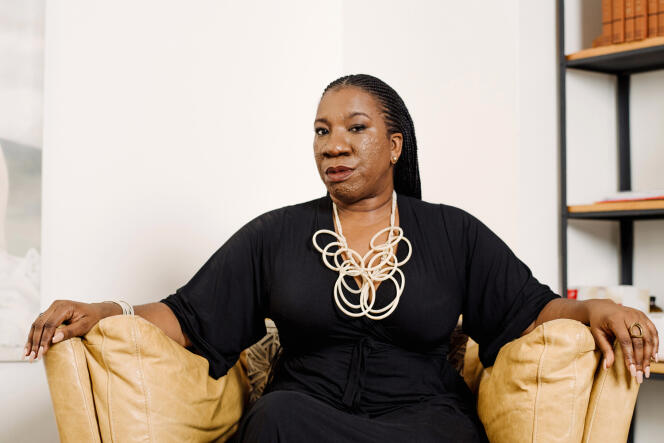
"It was an explosion." From her office in the Bronx (New York), 49-year-old African-American social worker Tarana Burke remembers the shock of October 15, 2017, when thousands of women shared the hashtag #MeToo to testify about the sexual violence they had or could have experienced. An explosion of both joy – and utter panic.
It was 10 days after the release of the New York Times investigation exposing producer Harvey Weinstein (who would be sentenced in 2020 to 23 years for sexual assault and rape). American actress Alyssa Milano tweeted "Me Too," and talked about the sexist and sexual violence she had faced during her career. Within hours, the term had become a viral hashtag. The actress has since been considered the founder of the movement that is now celebrating its 5th anniversary. But it is not the case.
Back in 2006, Ms. Burke created Me Too, a New York organization fighting against sexual violence inflicted on young Black girls from working-class backgrounds. She described herself as a "survivor" of rape at the age of 7. Very quickly, internet users told Ms. Milano about Ms. Burke's existence. The day after her tweet was published, the actress apologized and offered to accompany her during her media speeches. Despite everything, it would take several weeks for the press to recognize Ms. Burke was, in fact, the person coining the term used at the origin of the movement.
Class and race bias
It was a form of erasure that was "difficult" to cope with, she admits. She attributes it to class and race bias. "If #MeToo went viral, it was because the victims were very privileged women, rich, famous and mostly White. Not even Black celebrities were included in the movement." Her analysis is shared in France by writer Axelle Jah Njiké, who has been following Ms. Burke's work closely since October 2017. "She was made invisible, and that raises the question of the legitimacy of narratives. It was complicated to imagine a Black woman in her 40s being behind at the origin of one of the most important social movements of the century, one that's universal to all women."
Ms. Burke quickly tried to chase away these early feelings of bitterness. She understood that it was the perfect opportunity for her to make her fight known to the public. "I saw an opportunity," she said, "because our organization's work around sexual violence affects everyone. Whether it's Black people, LGBTQIA+ or the most marginalized rape survivors." Much in demand since late 2017, Ms. Burke has now become a celebrity feminist in the United States.
You have 62.62% of this article left to read. The rest is for subscribers only.